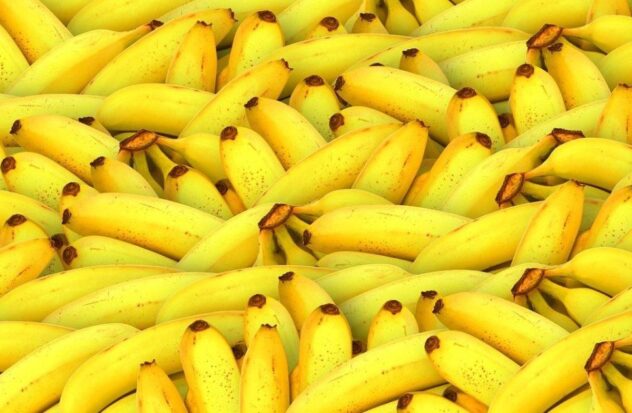QUITO, ECUADOR — About a ton and a half of drugs (especially cocaine) were detected in a shipment of Ecuadorian bananas destined for the United States, the police reported on Saturday.
The seizure took place at a time when public force operations are intensifying in an attempt to counteract organized crime groups in the Andean country.
The drugs, packaged in more than a thousand bricks that tested positive for cocaine, were hidden in the fruit boxes and were found the day before during an inspection by an anti-narcotics cannon of a container in Puerto Bolívar, in the city of Machala, 373 kilometers southwest of the capital, the police reported in a statement.
The shipment had the final destination of the United States, with transshipment in Guatemala, the report added.
The authorities continued with a raid on the farm where the boxes of bananas and a home in the same city were shipped. Both the administrator of the farm and the representative of the exporting company were arrested. The nationality of those arrested was not reported.
In addition, two long weapons and 64 ammunition were seized, the institution indicated.
At the beginning of May, a shipment of two tons of cocaine, also hidden in boxes of bananas, was seized in a port terminal in Guayaquil, 270 kilometers southwest of Quito. According to the authorities, they were intended to be transferred to the Ruled port of Saint Petersburg, in Russia.
The largest stash of drugs in the Andean country – 22 tons – was located in January in some underground tunnels of a ranch in the coastal province of Los Ríos, according to authorities.
Between January and April, 77.5 tons of drugs were seized, according to official figures. Ecuador closed 2023 with the seizure of 211 tons of narcotics and 2022 with 201.
The geographical position of Ecuador, which is located in the middle of two major world producers, Colombia and Peru, makes it a strategic point for the collection and storage of drugs that enter mainly from the Colombian border, in the north of the country, and then distribute it from seaports to Central America, the United States and Europe.
Since January, the South American country has been declared in an internal armed conflict by the government of Daniel Noboa, which mobilized the armed forces and police in continuous operations to counteract organized crime groups with links to transnational drug cartels.
According to the authorities, these have unleashed a wave of violence that does not cease due to disputes between gangs for control of transportation routes, micro-trafficking and spaces of power inside and outside prisons.
Source: AP


